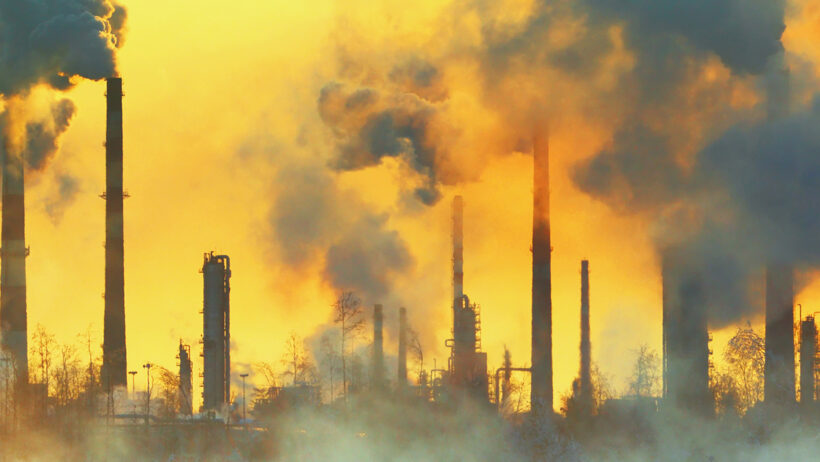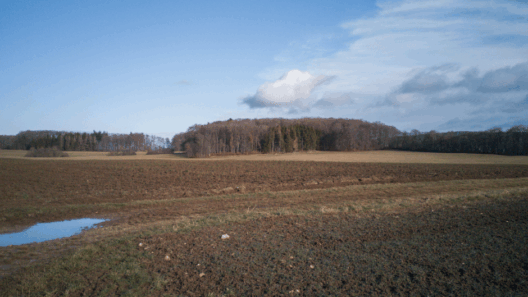The intertwining relationship between pollution and the climate crisis manifests a nexus that is urgent yet often overshadowed by other pressing global issues. At a superficial glance, pollution can appear as a localized problem, easily dismissed by discussions revolving around other socio-economic predicaments. However, a more profound analysis unveils how insidious pollution contributes significantly to the global climate emergency, a reality that demands not merely attention but immediate remediation.
To explore this interconnectedness, it is essential to dissect the various forms of pollution that lurk within our ecosystems. Air pollution—emanating from myriad sources such as vehicular emissions, industrial discharges, and the burning of fossil fuels—is perhaps the most perceptible form. Yet, it is the invisible particulate matter and greenhouse gases that pose an existential threat to our climate. Firstly, these pollutants trap heat in the atmosphere, thereby exacerbating the greenhouse effect, a primary driver of climate change.
Consider carbon dioxide (CO2) and methane (CH4), two pernicious actors in the theater of climate chaos. While CO2 emissions, primarily from fossil fuel combustion, have been well documented, methane’s potency is often overlooked. Methane, with a global warming potential over 25 times that of carbon dioxide over a century, predominantly arises from agricultural practices and the extraction of fossil fuels. This duality of air pollution—its role as both a local health hazard and a global climate provocateur—is essential for understanding the broader narrative of environmental degradation.
Moving beyond air quality, the dichotomy of water pollution further compounds our environmental woes. Heavy metals, plastics, and agricultural runoff pervade our water systems, contributing to toxic environments for aquatic life and ultimately interfering with global water cycles. Contaminated waters disrupt habitats and can alter natural weather patterns, thus linking localized pollution to more extensive climatic alterations. Water scarcity—a significant consequence of such pollution—affects millions worldwide, exacerbating socio-political tensions and creating a breeding ground for climate refugees.
In contrast to these more tangible pollutants, we must also acknowledge the insidious nature of soil pollution. Pesticides, herbicides, and chemical fertilizers have long been staples in intensive agricultural practices. Yet, their cumulative effect has rendered vast expanses of arable land increasingly inhospitable. Soil health directly correlates with the capacity of ecosystems to sequester carbon, making soil degradation a largely underestimated contributor to climate change. When soil fails to store carbon efficiently, more CO2 remains in the atmosphere, fuelling further climate disruption.
One of the more alarming aspects of the pollution-climate connection is the feedback loop that sustains this vicious cycle. As global temperatures rise due to increasing greenhouse gas emissions, we encounter phenomena such as permafrost thawing, which releases additional greenhouse gases into the atmosphere. This self-perpetuating loop not only hinders our climate stabilization efforts but also raises questions about the viability of our ecosystems and human civilization moving forward.
Despite the overwhelming evidence linking pollution to the climate crisis, a noteworthy paradox remains. The very same nations and corporations historically responsible for extensive pollution have often been the slowest to act, perpetuating a narrative of inaction. The fossil fuel industry, for example, has wielded considerable influence over public policy, employing tactics designed to downplay the urgency of addressing both pollution and climate change. This manipulation ensures that the connection between the two remains obscured, allowing industries to prioritize short-term profits over long-term sustainability.
Nevertheless, glimmers of hope reside in grassroots movements and advancements in technology. Increasingly, communities are banding together to combat pollution at local levels, propelling larger global conversations about climate accountability. From innovative renewable energy solutions to initiatives addressing plastic pollution, there emerges a collective metamorphosis towards an ecologically sound paradigm. Such efforts underscore the urgency for a multifaceted approach: one that acknowledges pollution as a precursor to climate crisis action.
Policy reform provides another avenue for addressing the pollution-climate intertwining. Stricter environmental regulations, coupled with substantial investments in clean technologies, can mitigate emissions while fostering ecosystem resilience. Strategies, such as promoting sustainable agriculture, could restore soil health and enhance its carbon storage capabilities, transforming it into an ally in the fight against climate change.
Furthermore, education plays a pivotal role in shifting societal perspectives on the pollution-climate connection. Raising awareness about the ramifications of pollution fosters a culture of ecological responsibility. By equipping individuals and communities with knowledge, we can cultivate a generation committed to sustainable practices that protect both public health and the environment.
Ultimately, understanding pollution as a significant contributor to the climate crisis isn’t merely an academic exercise; it bears real implications for policy, public health, and existential futures. A comprehensive approach to mitigate pollution—spanning local community action, industry accountability, policy reform, and educational initiatives—will be critical in unraveling this intricate web of interdependence. The road ahead is fraught with challenges, yet the synergy between combating pollution and curbing climate change represents an opportunity for transformative change.
As we forge ahead, it becomes imperative to embrace the idea that addressing pollution is not merely an environmental obligation but a moral imperative. The very fabric of our societies and ecosystems hangs in the balance, calling us to action now more than ever. The connection between pollution and the climate crisis is indeed dirty, but it is also deeply intertwined with our prospects for a sustainable future.




